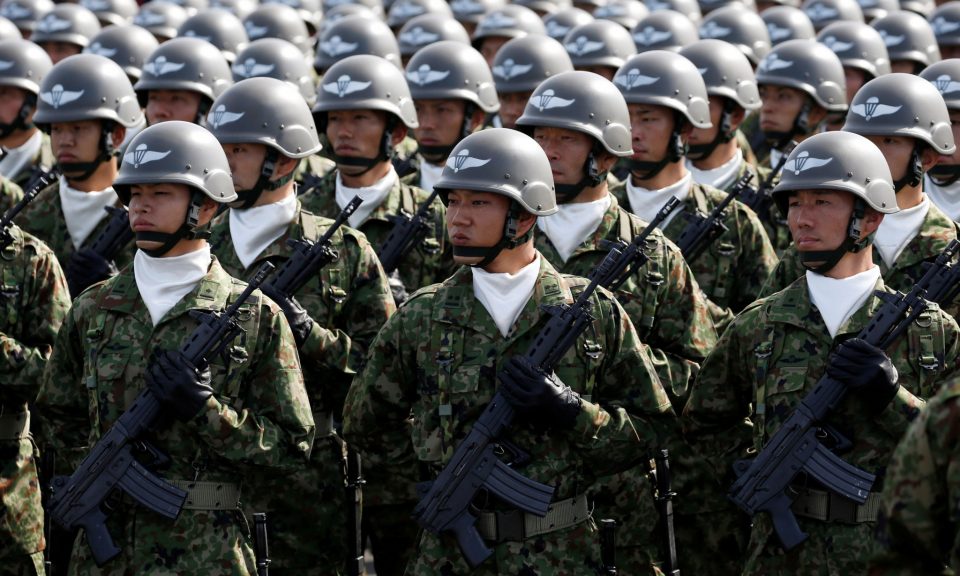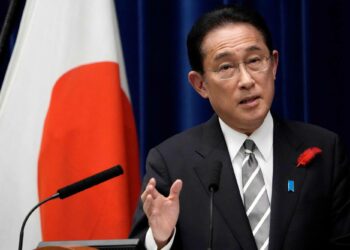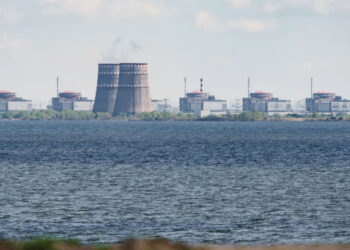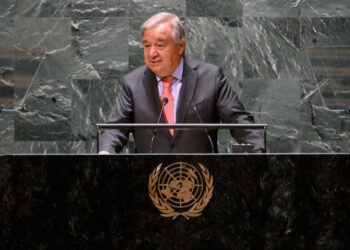North Korea’s nuclear weapons program has resulted in global concern about Japan’s nuclear posture. Some analysts have argued that the U.S. should encourage Tokyo’s nuclear prospects to counter or cope with Pyongyang’s nuclear ambitions. In this context, former U.S. Secretary of State Henry Kissinger predicted that the U.S. would not be able to prevent Japan from acquiring its own nuclear weapons.
Japan has maintained a non-nuclear identity for decades, preferring to rely on the U.S. extended deterrence and global disarmament diplomacy. Japan has been actively committed to the Non-Proliferation of Nuclear Weapons Treaty and the Comprehensive Nuclear-Test-Ban Treaty. The country joined the International Atomic Energy Agency in 1957. Since 1994, Tokyo has been regularly introducing United Nations resolutions for the elimination of nuclear weapons.
The continual series of events related to North Korea’s nuclear growth and the Northeast Asia security threat leaves us with the question of how much longer we can expect this non-nuclear policy pattern of Japan to continue.
Japan adopted a non-nuclear policy after the end of World War II. It includes not possessing, not developing, and not introducing nuclear weapons into the country. In the mid-1960s, after the development of nuclear weapons by China, Prime Minister Eisaku Sato officially announced that Japan would rely on the U.S. nuclear deterrence for its security. He added that Japan, with its three non-nuclear principles, needs the U.S. umbrella for its survival and thus, announced the “four nuclear policies” of the country. These policies did not impose any legal limits on the Japanese government but were widely supported by the Japanese people.
Japan’s explicit dependence on the U.S. nuclear protection has enabled the country to maintain a “pacifistic” security strategy, showing a lack of concern about the possibility of a nuclear attack by any other country. Even after the late 1970s, when the Soviet threat intensified once again, Japan did not bother to make any fundamental changes in its non-nuclear doctrine.
Threats of North Korea and China
With the relative decline of U.S. dominance in Asia, especially in the context of a belligerent North Korea and the rise of China, one can argue that Japan, under the U.S. umbrella, will not turn to the nuclear option. A number of Japanese defense analysts noted that a very strong conventional defense capability could take the place of the nuclear power.
Others mentioned that since the development of a second-strike capability would take years, a nuclear force is less attractive, especially considering how vulnerable the small island country is to any nuclear attack. Thus, the Japanese response to theoretical U.S. disengagement would not necessarily be a nuclear one. However, the potential for a nuclear Japan is a question to ponder.
Continuous North Korean nuclear tests could strain Japan’s patience, but it is unlikely that they would provoke a nuclear response. A nuclear attack by North Korea (which seems unlikely) would probably traumatize the nation enough to shock the public into accepting the Japanese nuclear deterrent. Indeed, such an event could reframe the way the Japanese think about nuclear weapons. Instead of being a victim of nuclear weapons, Tokyo could be seen as a victim due to its lack of a nuclear deterrent. Nevertheless, a North Korean nuclear attack would not guarantee a Japanese nuclear response. It would, however, make it highly likely.
One may need a crystal ball to answer the question about Japan’s future decision on the nuclear option in the next decades. But examining the factors, one can see that is unlikely that Tokyo will be pushing towards going nuclear.
There were precedents in the past when the world discussed the possibility of Japan taking up the nuclear option. One such instance was after the Cold War. Some scholars predicted that Japan would become a power independent from the U.S. It could allegedly happen after Tokyo would have acquired nuclear weapons due to the changing security environment in the region.
Despite these predictions and Japan’s increasing perception of China and North Korea as threats, Tokyo still maintained its non-nuclear policy. One of the major factors that determine Japan’s stance toward the nuclear capability is the domestic one. The horrific attacks on Hiroshima and Nagasaki made the Japanese public believe that nuclear weapons are “absolute evil.”
There will be times when regional security demands will challenge Japan’s commitment to nuclear disarmament as part of the global agenda. However, in a situation when Japan has to manage regional threats or face uncertainty due to reducing U.S. nuclear protection, the Japanese government would prefer to hold its non-nuclear identity for years to come and work towards non-proliferation and disarmament.
Lastly, it is highly unlikely that Japan will easily let go of its traditional nuclear position which enables co-existence of Japan’s non-nuclear identity and U.S. credible deterrence umbrella. The growing threat from North Korea and China is unlikely to prompt Japan to rethink the strategic value of the nuclear power. In fact, Japan would attempt to resolve any nuclear threat by redirecting international pressure and dialogue away from military escalations.
Disclaimer: The views and opinions expressed here are those of the author and do not necessarily reflect the editorial position of The Globe Post.



















